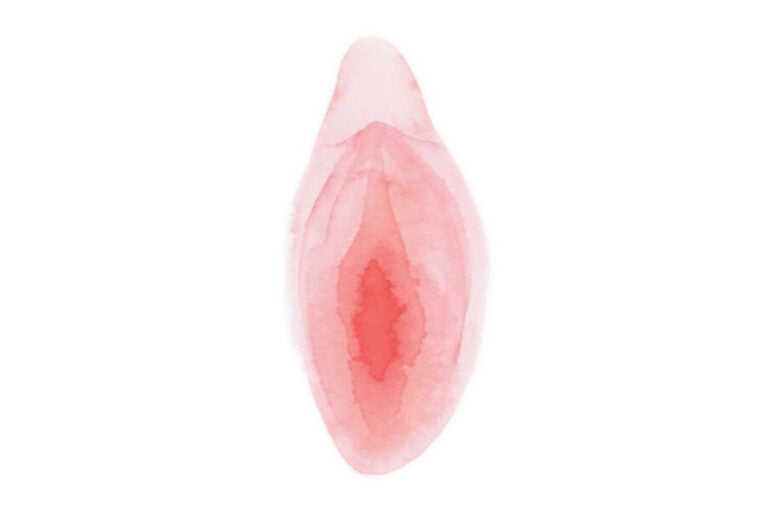For many people sneezing or coughing is a basic nuisance, but for those who deal with leaking urine every day, a sneeze can necessitate a change of clothes or wearing bulky pads or incontinence underwear to catch that urine flow.
When cold and flu season arrives, and the sneezing and coughing becomes more chronic, this leaking urine becomes an even bigger nuisance. Additionally, cold and flu season also corresponds with the holiday season, and we all tend to up our alcohol consumption, which further exacerbates the urinary incontinence problem.
See Also

Nothing says “Merry Christmas,” quite like leaking urine, does it? Well, fear not these days of sneezing, coughing and imbibing! As a pelvic floor physical therapist, I am here to tell you that urinary incontinence isn’t something you just have to live with, and we can find ways to strengthen those pelvic floor muscles and help you hold in that urine.
But, first, let’s take a look at the pelvic floor. This is an area of the body that most people really don’t know much about. Both men and women have pelvic floor muscles, and these muscles form a kind of hammock, supporting a variety of organs.
Pelvic floor muscles support the bladder and bowel, helping us to control our ability to release urine as well as feces. When these muscles become weakened or lose their ability to contract up against gravity, we can suffer from urinary incontinence, fecal incontinence or both.
There are many reasons why these muscles become dysfunctional. For women, pregnancy and childbirth can be a factor. For both men and women, age and weight gain can contribute, as well as issues such as constipation and chronic straining while sitting on the toilet. Sometimes people who spend their days lifting heavy items will find that the pelvic floor weakens or loses its supportive function over time. Certainly anyone with leaking urine issues knows just how difficult it can be to lift something heavy without those irritating dribbles coming out.
As these muscles become weaker or more dysfunctional, this makes it harder for us to keep urine in our body. It also can increase feelings of urgency to urinate, which is irritating to say the least.
But, you don’t have to just live with this problem, there are ways to reduce or even eliminate leaking urine issues. The first step should be to talk with your physician. It’s smart to first ensure that there aren’t any underlying physical causes, such as an infection or even an obstruction in your urinary tract or perhaps an issue with nerves in your bladder.
Typically, though, those pelvic floor muscles end up being the culprit and there are a number of ways we can retrain this area, so to speak. Your doctor might suggest some behavioral therapy. This means you’ll kind put your bladder through some basic training.
For instance, if you tend to find yourself in the bathroom every half-hour; you might start to increase the intervals between bathroom trips by 10 or 15 minutes until you can go about three hours between bathroom trips. In some cases, you will want to actually schedule your trips to the bathroom to kind of show that bladder that you are in charge. Sometimes it also helps to urinate, wait a few minutes and urinate again to really void out every bit of urine.
Of course, certain liquids such as coffee, tea and alcohol act as diuretics, making us feel the urge to urinate more often and contributing to that pesky leakage. Reducing the amount of coffee, tea and alcohol you drink might also help reduce bladder issues, although I know that can be tough on special occasions and during the holidays.
Losing weight, if you are overweight, also can help lessen the pressure on the bladder. Of course, reducing weight and getting into better shape can be hard, and it’s especially frustrating if your bladder is leaking with every step you take and every sit up includes a splash of urine along the way.
Once you’ve ruled out any possible medical causes, I highly recommend that you consider a visit to your friendly neighborhood pelvic floor physical therapist. As a pelvic floor PT, I can help you strengthen these muscles and reduce the discomfort and nuisance associated with leaking urine.
You’ve probably read about Kegels and other types of strengthening exercises that may help with urinary incontinence issues. Specialized exercises are a fantastic option, but the problem is that just reading about them online or from a book tends to be very ineffective. Likewise, Kegels are not the end-all, be-all of pelvic floor exercises, PTs have a lot more in our bag of tricks than Kegel exercises.
When you visit a pelvic floor PT, they listen carefully to your situation and assess your muscle strength before deciding how to proceed. Once we’ve decided which exercise options will best address the issue, we ensure that you are doing each exercise correctly. It really takes some time to truly understand the proper way to do these exercises, and doing them correctly makes all the difference in the world.
Exercising is far more effective and you’ll see much better results when you are guided by a professional physical therapist. It can take time to really strengthen the pelvic floor, but it’s absolutely worth it when your life is no longer controlled by leaking urine.
If you are tired of leaking urine, tired of pads, tired of sneezing and then running to change underwear and just frustrated by all of it, please call our office. Leaking urine is not something you have to just “deal with,” and there are options beyond medications and surgery.
Of course, leaking urine or leaking feces aren’t the only pelvic floor issues people face. If you are suffering from pelvic pain, painful sex or any discomfort in the pelvic floor area, a pelvic floor PT can help you restore the pelvic floor to a healthier and more optimal state. We know these issues can be embarrassing, but we offer you a comfortable and safe place where you can discuss these issues without shame or embarrassment.
We’ve heard it all! You aren’t alone, and a pelvic floor physical therapy really can make a huge difference in your quality of life.
Whether you are leaking urine, experiencing pelvic pain or having other pelvic floor issues, contact us today and let’s schedule a phone consultation and get you on a healing path. Just in time for the holiday egg nog and the winter sniffles and coughs.









